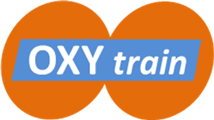Andrea Fabara
Tell us something about your background.
My love for science commenced at an early age; I gained my Baccalaureate in Science at the Lycée La Condamine, in Quito, Ecuador. Following this experience I decided to further develop my scientific studies in Strasbourg, France where I attended the University of Strasbourg and obtained my Bachelor degree in chemistry.
In 2015, I started my Master’s degree, at the University of Strasbourg in the research group of Biotransformation and Biocatalysis. During my Master studies I visited University of Groningen, where as a part of the programme, I worked on a project that aimed at exploring and engineering the substrate selectivity of the hydroxylase component of a bacterial three-component P450. I learned about the biochemistry of P450s, their electron transfer systems, and the way biocatalytic activities of such enzymes should be explored. My second year project thesis took place in Ecuador at the Catholic University of Quito. There my main objective was to use molecular coupling methods to establish the biochemical behavior of silver nanoparticles on the lipid layer of the skin.
Tell us a bit about your PhD project in OXYTRAIN and your research interests.
My project in OXYTRAIN: Application of monooxygenases into textile industry.
Indigo dye has been the world’s most important and popular dye for almost 5,000 years and the demand is increasing, especially in denim industry The current immense popularity stems mainly from the “worn-out look” of blue jeans that can only occurs with yarns dyed with indigo blue dye. The process of indigo dyeing requires two main steps: i) indigo synthesis and ii) indigo reduction. Both processes require the use of harsh chemicals. The main objective of this project is to replace one of the above steps by enzymatic processes or to combine the two steps into one single step, therefore developing a new ecologically friendly in house dyeing process.
The research I need to carry out in this project will include engineering of a biocatalyst that is effective in synthesizing indigo blue dye. The most vital enzyme for this, a flavin-containing monooxygenase, will be modify in such a way that it can be used for the efficient production of indigo blue and some of its derivatives, ensuring the protection of the environment and learning new/innovative techniques, which make this project highly interesting.
My scientific interests
My interest in enzymes began to arise and develop during my Bachelor and Master studies. Even though I have a chemical background, the world of enzymes is incredibly fascinating to me; not only can they make processes more efficient but also they exist in nature, and therefore are nature friendly. I am very excited to have the opportunity to learn new and innovative bio-technology techniques.
What do you expect from OXYTRAIN?
Being part of the OXYTRAIN program is a great opportunity to share mutual knowledge with my fellow ESRs and therefore improve the collaboration among us. It will also allow us to be more pro-active in making new discoveries that will ultimately make the world a better place, as the common sharing of information will be beneficial to all. I am also looking forward to gaining a deeper understanding of how oxygenases work, so eventually we can use them for industrial applications.
What do you like to do in your free time, your hobbies, interests, what motivates you.
In my free time I like doing sports, reading, and being in nature. I also enjoy traveling and discovering new cultures and food.
